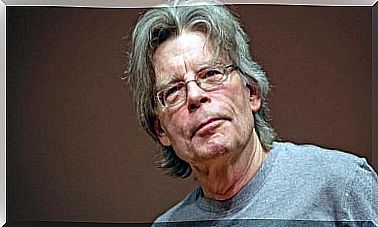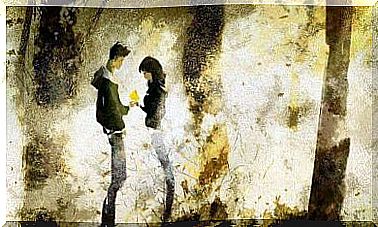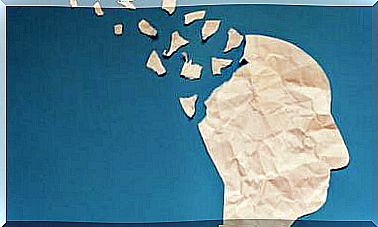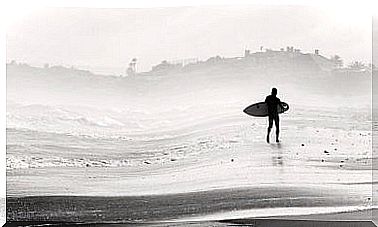Nature, Our Home: Feeling, Connecting And Caring
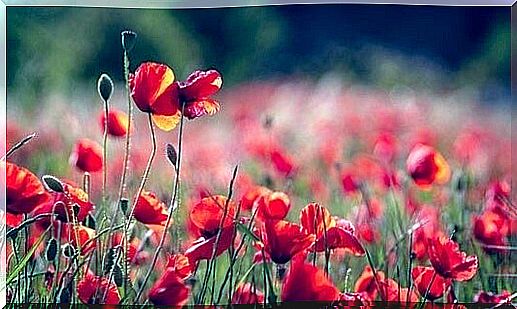
Every March 3, the day of nature is celebrated. Henry David Thoreau, the well-known 19th century philosopher who emerged as the father of environmental awareness, once said that preserving that magical world means, ultimately, taking care of our future. As simple as that and at the same time so complicated.
Safeguarding the environment and all those ecosystems that comprise it means ensuring our future, our survival on a planet that is hurt more every day. Because if there is something that we often forget, it is that nature does not really need us. What’s more, sometimes we act like a virus that destroys it and makes it sick. However, each of us do need her in every possible way.
Forests, jungles, grasslands, mountains, oceans and seas, rivers, wetlands and coasts … On our little planet, that pale blue point in the Universe, as Carl Sagan would say, inhabits a natural setting as wonderful as rich. Beyond its undeniable beauty and the living beings that make it up, there are those resources that allow our subsistence.
Climate change is real and its effects are and will be devastating for decades to come if we do not take action. Our oceans now have in their composition an element that does not belong to them, an agent that man has created and whose impact is enormous: plastic. We are losing biodiversity, the Amazon is hurt and desertification advances year after year …
It is time to become aware. It is time to make changes and not be left alone with your intentions …
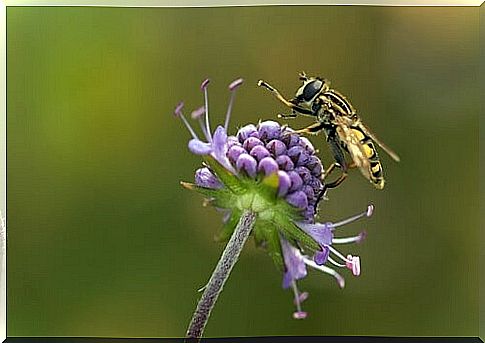
Feel nature, the voice that speaks to us
There is a subtle balance in nature that sometimes it is difficult for us to perceive. Feeling it, understanding its language is complicated when our habitat is cities, when our body and mind have become accustomed to the noise of the urban, to the sound, shapes and smell of large capitals. But even so, nature always calls us, it is perhaps something atavistic that emerges from our roots.
Feeling nature means being able to understand that balance reigns in that world. Each tree, each fern, each coral under the sea and each bee pollinating a flower, has its place and its intangible essence. If that changes, if its place and its continuity in the corner that was always given to it is altered, something breaks.
For this reason, beyond the classic (and necessary measures) to protect nature, there is the need to know how to feel and understand it. The first thing therefore is education. Being aware that the environment and each of its elements are sacred, would undoubtedly help us not only to preserve them, but also to enjoy them much more.
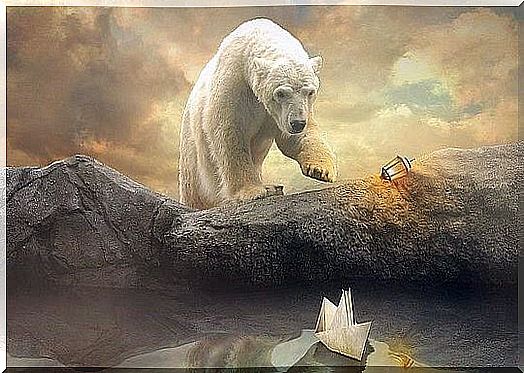
Connect with nature: well-being and health
Connecting with nature is more than hugging a tree. It is also listening to their silence to understand their language, the one that the rivers whisper, the one that brings the ocean with the purring of the waves. It is also being able to listen to the life in forests and jungles, so varied and sensitive at the same time to the impact of massive logging and pollution.
The connection with each of the ecosystems of our planet allows us, in turn, to find ourselves. Appreciating these scenarios often strips us of worries, anxieties and external pressures.
Nature is our home and we are always welcome in its lap, yet we have neglected it for decades, hence the United Nations has proposed the 2030 Agenda for Sustainable Development.
The commitments that have been made are the following:
- Fight climate change.
- Reduce the impact of plastic on seas and oceans.
- Preserve forests.
- Stop desertification.
- Stop the loss of biodiversity.
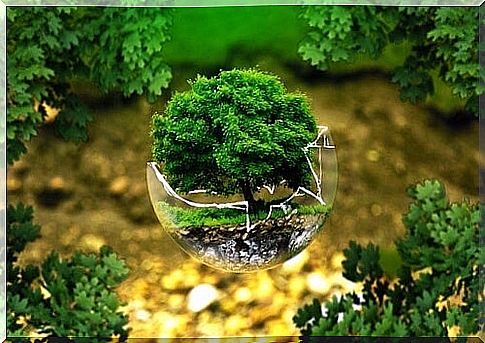
Caring for nature: the rule of the three r’s
Caring for nature is everyone’s responsibility. We need global agreements, strong legislation, commitments from the great powers, and most importantly, we need not just be left with good intentions. Because if we want to guarantee a good future for future generations, we must make changes on a day-to-day basis.
And that responsibility falls on each one of us. To do this, it is good to remember the well-known rule of the three R’s. It consists of the following:
Reduce
Reducing means being able to minimize the consumption of products that are polluting or that deplete natural resources. As far as possible, it would be appropriate to lower the purchase of items that carry plastic: bags, bottles, straws, ear sticks, etc.
Other examples of reduction to take care of nature would be the following:
- Limit the use of prepared foods (which always contain plastic containers).
- Save energy. Turn off all lights and appliances that we are not using.
- Turn off the water tap when we don’t need it (while washing dishes or brushing our teeth, for example, the tap doesn’t have to be open).
Re-use
We are more used to discarding than reusing. The big changes are based on simple advances, thus, using, for example, the water from our shower or bath to fill the toilet cistern, would be a way to avoid excess water consumption.
We can do the same with other products: large plastic bottles can be used as flower pots, the packaging of certain products can have other uses and the clothes that we do not use can be given to other people.
Recycle
One way to avoid the impact of plastic and other polluting elements for nature is recycling. Submitting those most harmful materials to processes for which they may have another use is essential.
Something like that requires a good commitment on our part. It is therefore time to end the culture of use and disposal, to recycle everything we can.
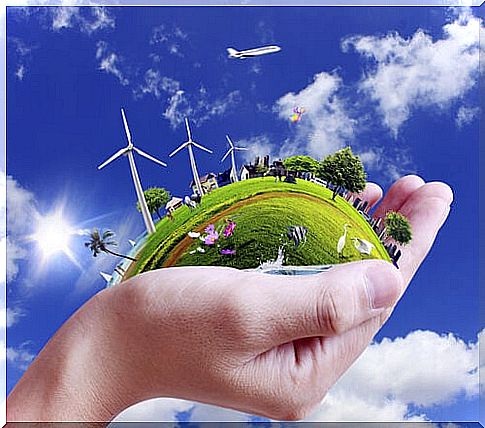
To conclude, beyond the fact that Nature’s Day is celebrated every March 3, there is something undeniable: it is our home. If she’s okay, we’ll be okay. This planet, the one that the Greeks called Gaia, needs us and must be attended to 365 days a year. Let us feel his voice, connect with it and take care of it.



